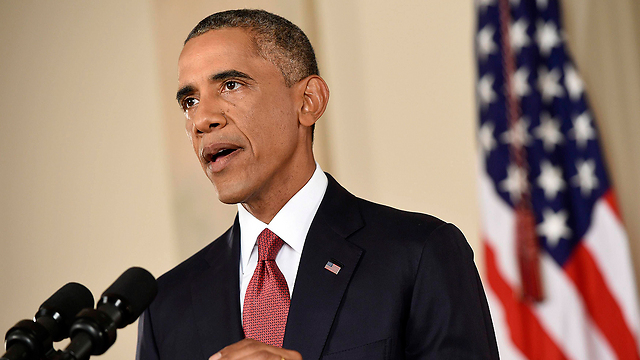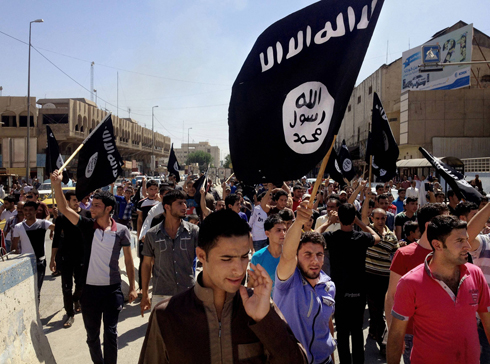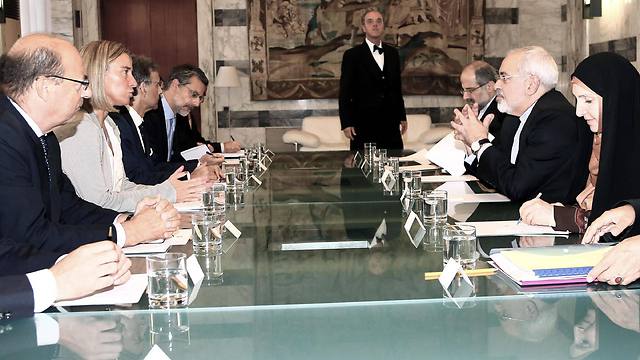Israel concerned ISIS threat may distract Obama from Iran
Senior source tells Ynet that US may moderate its pressure on Tehran in nuclear talks because Obama will be focused on combating Islamic State.
The coalition created by US President Barack Obama to combat the threat posed by the Islamic State has brought rare cooperation to a divided and conflicted Middle East.
Rivals like Egypt and Qatar will line up side-by-side, as Sunnis and Shiites volunteer their help, but voices within the US have pointed a finger on Thursday on missing member of the coalition: Iran.
The New York Times dedicated its top slot on Thursday to the concern within Israel that Obama will focus less and less on Iranian efforts to develop nuclear weapons, at a critical moment in the diplomatic effort to curb such a result.
Iran remains a short distance from achieving the capability to manufacture nuclear weapons, and only suspended its progress because of an interim agreement the Islamic republic signed with Western powers last year in Geneva.
That accord, in which Iran and six world powers were supposed to reach a comprehensive agreement by July, failed to live up to its potential, and the new deadline posed – November 24 – is not far in the future.
If a permanent agreement is not signed by that date, the military option which the US often raised as a threat will need to make a fresh appearance; the question remains whether Obama, deeply invested in the fight against ISIS, will have the ability to pose a credible threat to the Iranians.
A senior political source told Ynet on Thursday night there was concern over the possibility that the US will moderate its pressure on Iran in the talks. A senior minister familiar with the issue said that "we are actually concerned about that possibility."
Sources in Israel said that the US has attempted to alleviate Jerusalem's concerns in recent months, promising that their policy towards Iran will not change. But Jerusalem is not convinced, especially given that only this week Obama cited the Islamic State as the biggest threat to the Middle East – and not Iran.
The negotiations between Western powers and Iran have shown no signs of clearing any significant hurdles, even as time runs out on the already-extended talks. Iran's deputy foreign minister, Abbas Araghchi, said Thursday after another round of deliberations in Vienna with European representatives that there was still "a difficult road" to reach an accord.
He added: "We are always optimistic… but we have a tough road to cross."
According to diplomats, the most divisive issue standing in the way of an accord was the quantity of centrifuges Iran would be allowed to keep. Tehran rejects any call to significantly reduce its capacity of centrifuges – which stands at 19,000 installed, with half operational.
Iran and the six world powers – US, Russia, China, UK, France, and Germany – reached an agreement with Tehran by which Iran would suspend the majority of its sensitive nuclear work in return for sanction relief.
Yet the two parties to the negotiations failed to reach an agreement by a self-imposed deadline – July 20 – and decided to extend for a few months – to November 24.
A diplomat in Vienna rejected the possibility of another extension to the negotiations if an accord is not signed.
Reuters and the Associated Press contributed to this report.













